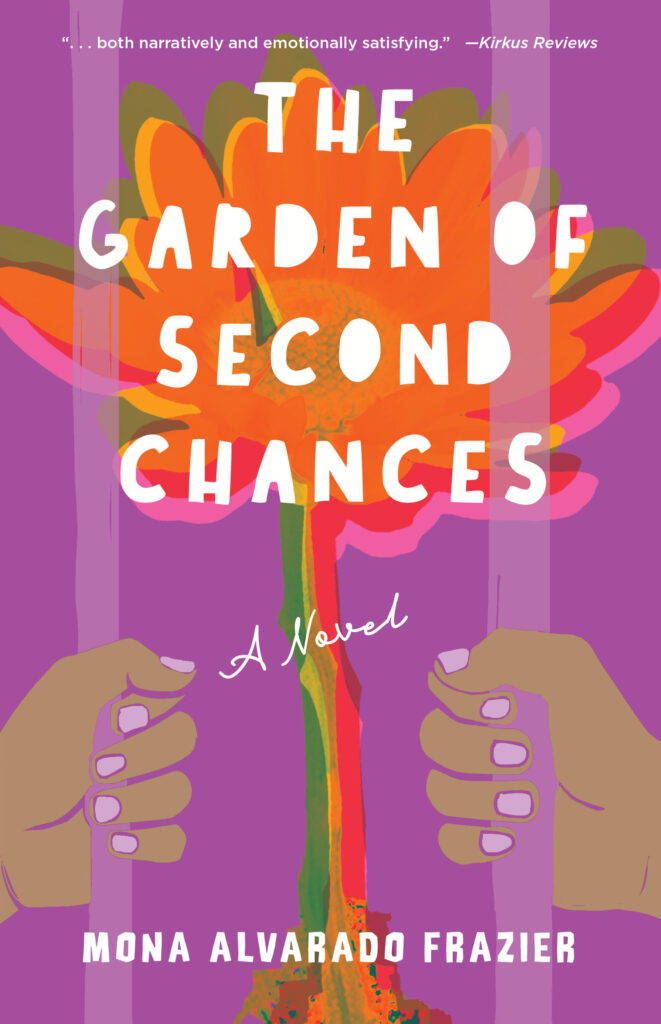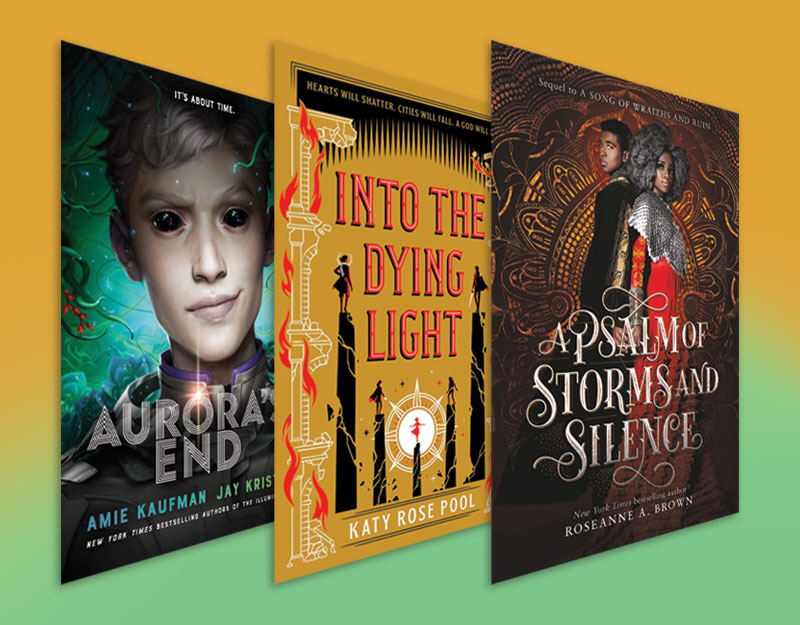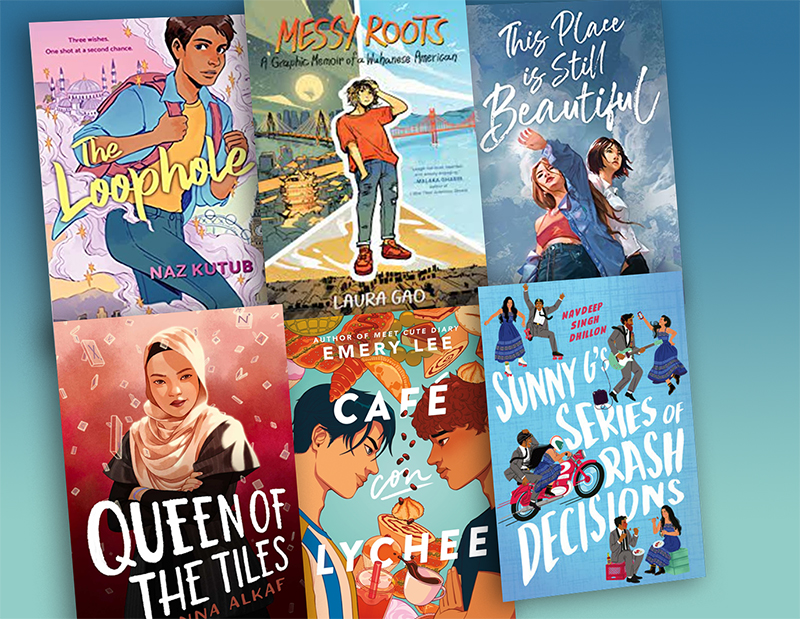Teens and Intimate Partner Violence: 12 Red Flags, a guest post by Mona Alvarado Frazier

In my novel, The Garden of Second Chances, the main character, Juana Maria, experiences Intimate Partner Violence (IPV). The situation escalates; her boyfriend dies, and she is convicted of manslaughter.
While in prison, she learns that many young women experience IPV but are hesitant to discuss the specifics or are not sure that what they experienced was abuse. They had little knowledge of what constituted IPV, what signs to look for in a relationship, or how to report the incidents.
ADVERTISEMENT
ADVERTISEMENT
Each year, approximately 12 percent of American high schoolers of all genders experience emotional, physical, or sexual violence at the hands of someone they date. Young women, transgender teens, and gender-nonconforming youth are disproportionately affected.
Intimate partner violence is a type of power-based behavior between members of a current or previous relationship that uses power and control to maintain the connection.
Intimate partner violence is not restricted to personal interactions. It can also occur on social media and other electronic communication, such as cyberstalking and the non-consensual distribution of intimate images.
IPV happens—a lot. People don’t talk about it with others or are afraid to tell someone. This makes reporting instances challenging. By keeping silent, the person can suffer PTSD and depression and sometimes become dependent on alcohol or other drugs. These effects linger long after the IPV incident, the bruise, or after the relationship ends.
Here are twelve “red flags” or warning signs of IPV:
- Possessiveness: Your partner is overly controlling, jealous, or possessive. This is also when your partner constantly checks up on you, questions you, or accuses you of lying.
- Isolation: Your partner tries to limit your time with family or friends or keep you away from social activities by making you feel guilty for wanting to spend time with other people or activities. There is also financial isolation. In the novel, Juana Maria’s boyfriend gives her an allowance for groceries and the baby’s needs. Once that is spent, she doesn’t have access to any money.
- Disrespect: Your partner regularly disrespects you or dismisses your feelings or opinions. This is also when they publicly or privately belittle, criticize, or make fun of you.
- Verbal or Physical Abuse: Your partner uses abusive language, intimidation, threats, or physical force toward or on you.
- Unhealthy communication: Your partner refuses to communicate or listen, constantly argues, or puts you down. They use manipulation, threats, or emotional blackmail to get what they want. In the novel, Juana Maria’s immigration card is withheld, and her boyfriend threatens to call ICE to deport her without her child if she doesn’t comply with his requests.
- Pressure: Your partner pressures you into doing things you are uncomfortable with, such as drugs, sex, or other activities.
- Love bombing: This might look like your partner telling you repeatedly that you’re the best thing that ever happened to them, how much they adore you, how perfect you are, and how they will die if you ever leave them. This is a type of manipulation.
- Insecurity: Your partner constantly seeks reassurance, is overly sensitive, or has low self-esteem. An example is your partner overreacting if you don’t respond immediately to a text or call.
- Dishonesty: Your partner is consistently dishonest about small or large things, or they overreact to any questions you have about a situation.
- Unfair expectations: Your partner has unrealistic expectations and demands for the relationship, leaving you frustrated and unfulfilled.
- History of abusive behavior: Your partner has a pattern of badmouthing partners, shaming them, or there are rumors of abuse with others.
- Ignoring your intuition: Your intuition can be a feeling of unease or uncomfortableness with something your partner does or says. You detect that something is not quite right in the situation. In these cases, you can discuss your assumptions with someone you trust. It’s essential to seek out additional information.
Four reasons why IPV can be challenging to recognize when involved in a relationship.
- Normalization: In some cases, IPV becomes normalized within a relationship. The abuser may use subtle or gradual tactics to establish control, making it difficult for the victim to recognize the warning signs until the abuse becomes more severe.
- Shame and stigma: Victims of IPV may feel ashamed, embarrassed, or fearful about their situation. They try to hide the abuse with clothing or make-up. This can prevent them from speaking out or seeking help.
- Manipulation: Abusers may use tactics such as gaslighting, a form of emotional abuse. The victim is manipulated into doubting their perceptions and experiences. This makes it difficult for them to articulate the abuse.
- Lack of knowledge: A person may not know the warning signs of IPV or understand the dynamics of abusive relationships. Top of Form
Shame, guilt, embarrassment, and fear may keep people from talking about IPV, but that does not mean someone struggling with intimate partner violence must struggle alone. Sometimes the first step in breaking the cycle of violence may simply be speaking the experience aloud to a trusted adult, such as a teacher, counselor, or family member.
Parents and educators can educate teenagers on the importance of identifying and reporting signs of abuse. They can provide information on recognizing the red flags of an unhealthy relationship and help them develop healthy relationship skills.
The CDC lists ways to prevent intimate partner violence. One of them is by implementing school prevention programs. These programs can educate students on healthy relationships, consent, and communication skills, as well as provide resources and support for those affected by abuse, such as counseling and referral services.
ADVERTISEMENT
ADVERTISEMENT
I hope you always prioritize your safety and well-being in your relationships. If someone you know is involved in an abusive relationship, tell them that confidential support is available through the National Domestic Violence Hotline at 800-799-7233 or text START to 88788. Teens can visit loveisrespect.org, call 1-866-331-9474 (TTY: 1-800-787-3224), or text “LOVEIS” to 22522.
Meet the author

After decades of working with incarcerated youth and raising three creative kids as a single parent, Mona Alvarado Frazier is now fulfilling her passions of writing and traveling. When not doing either of those she’s reading, volunteering, watching K-dramas, and tending the family’s two cats and her succulent gardens. Mona’s short stories are published in the University of Nevada, Reno anthology Basta! Latinas Against Gender Violence and Palabritas, a Harvard literary journal. She is a member of SCBWI and Macondo Writers and a cofounder of LatinxPitch, a Twitter event. She is a 2021 Mentee of Las Musas Latinx children’s literature collective, and resides in Oxnard, California.
About The Garden of Second Chances
Juana, a seventeen-year-old mother, is sentenced to prison for murdering her husband. She claims she’s innocent—but no one believes her, including the prison staff and a gang leader in her block who torments her.
Juana’s troubles aren’t confined to prison, however—she’s undocumented, and her husband’s bereaved family is now threatening to take her baby from her forever. Feeling hemmed in on all sides and desperate to stay out of trouble, Juana creates her own refuge in the prison yard: a garden she created. As she digs in the soil, nurturing the plants, she remembers her courageous, long-deceased mother, who she knows would never give in or give up. Juana’s only hope for saving herself and her baby is to prove her innocence—but how?
ISBN-13: 9781684632046
Publisher: SparkPress
Publication date: 06/06/2023
Age Range: 13 – 18 Years
Filed under: Guest Post
About Amanda MacGregor
Amanda MacGregor works in an elementary library, loves dogs, and can be found on Twitter @CiteSomething.
ADVERTISEMENT
ADVERTISEMENT
SLJ Blog Network
Name That LEGO Book Cover! (#53)
Cover Reveal and Q&A: The One and Only Googoosh with Azadeh Westergaard
Exclusive: Vol. 2 of The Weirn Books Is Coming in October | News
Fighting Public School Book Bans with the Civil Rights Act
ADVERTISEMENT







